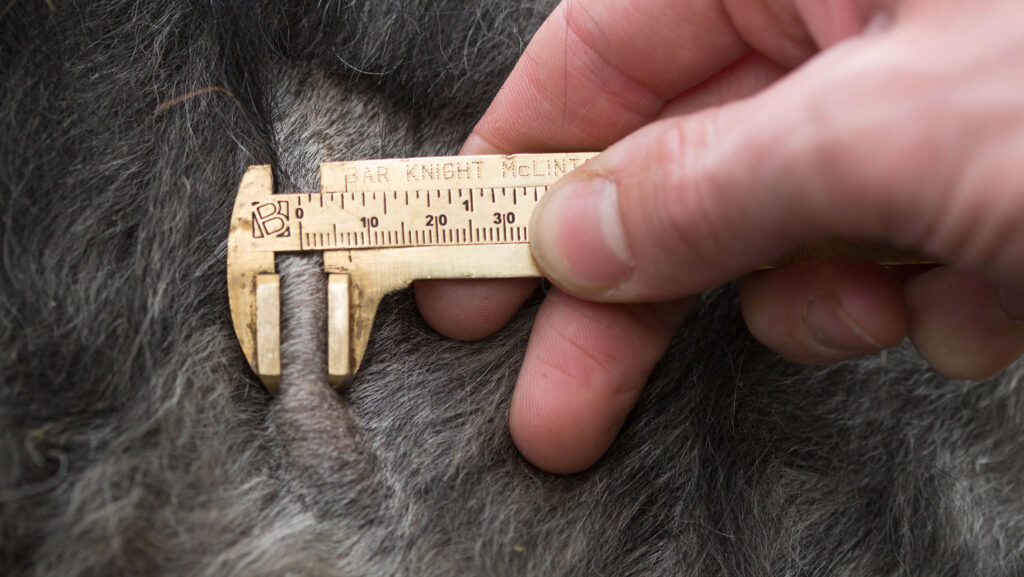Welsh TB strategy is working, claim government officials
 © Tim Scrivener
© Tim Scrivener Wales is making positive progress in addressing the bovine tuberculosis crisis through its TB eradication programme, the Welsh government has announced today (13 May).
Through partnership working and changes to government policies, such as on-farm slaughter changes and movement restrictions for inconclusive reactor cattle, it is aiming to be officially TB free by 2041.
See also: Record 27% rise in TB cattle slaughterings in Wales
“Our partnership approach with the Technical Advisory Group (TAG) and Programme Board is delivering real changes that help both tackle the disease and support farmers through difficult times,” said deputy first minister Huw Irranca-Davies.
Disease picture
Last year, Wales saw a 27% increase in the number of cattle culled due to bovine TB.
Figures from Defra highlighted that more than 13,000 cattle were slaughtered in Wales in 2024, signalling an all-time high in a 12-month period since records began.
Addressing the current TB picture in Wales, chief veterinary officer Richard Irvine said:
“While we’re seeing long-term decreases in new TB herd incidents overall, the rise in cattle slaughtered during 2024 reflects strategic use of the high-sensitivity gamma interferon blood test alongside standard testing, to identify infected animals in breakdown herds.”
He explained that, while this increases removal numbers, the aim is to reduce infection rates and prevent recurring breakdowns.
“Our goal remains clear: better detection now means less disease in the future,” said Dr Irvine.
On-farm slaughter
Previous changes made to bovine TB policy followed the review of on-farm slaughter policy by the Technical Advisory Group’s (TAG’s) last year.
The Welsh government said feedback on the policy change has been positive and a quarter of animals (242 cattle from 111 individual herds) have avoided on-farm slaughter in the past year as a result.
Inconclusive reactor policy
The deputy first minister also announced that further movement restrictions will come into force for cattle that are classed as inconclusive reactors (IR).
Under new arrangements, these (resolved standard IR) cattle will be restricted to their herd with only licenced movements permitted direct to slaughter, or into an approved finishing unit.
Evidence, the Welsh government said, shows these resolved standard IR cattle are higher risk than other cattle as a larger proportion of them (approximately a third) go on to become TB reactors at a later point.
“Currently this risks such resolved standard IR cattle with undetected infection being moved and spreading TB to other herds – a key concern raised by industry,” said Mr Irranca-Davies.
It is understood that the new policy will take effect from the autumn to allow clear communication to industry around the implementation and enforcement of the change.
Partnership approach
A strong partnership approach is also said to be strengthening TB control in Pembrokeshire, with vets and farmers controlling TB through data provision and education.
Building on the principles and best practices, a similar initiative is being launched in the lower TB incidence area of North Wales.
Two new members are now also bolstering the TB Eradication Programme Board, including a representative from the Farming Community Network, to help provide guidance on mental health support, and a Young Farmers’ Club Wales representative.
“I am confident we have the right skillset and experience amongst both groups to provide the best possible advice to government on bovine TB, which enables us to do things differently in Wales,” added the deputy first minister.
Industry reaction
The Farmers’ Union of Wales (FUW) broadly welcomed the announcement, saying it outlines a tentative move forward through collaborative working across industry.
“Now that the lengthy process of establishing the governance structure is in place, we must take the disease by the scruff of its neck and follow the science in broadening the eradication policy in Wales by adopting a truly holistic approach to address this challenge,” said FUW deputy president Dai Miles.
NFU Cymru added that, while improvements to partnership working and targeted revisions to government bovine TB policy are encouraging, further significant change is still needed.
“We appreciate the need for patience in allowing these new structures time to do their job, but the scale and pace of progress needed cannot be overstated.
“For those people who are dealing with bovine TB on a daily basis, progress towards eradication feels slow and often non-existent,” said NFU Cymru bovine TB focus group chairman Roger Lewis.
